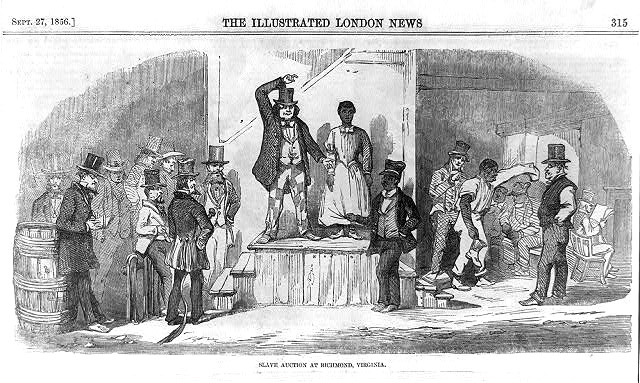Consumerism is undoubtedly one hell of a drug. Every year, people across the country research, plan, and prepare to line up for the hottest sales, only to scramble and fall over themselves and other patrons in a fight for only one of a few units of an item.
Black Friday has become a holiday tradition all on its own, synonymous with Thanksgiving, as people immediately prepare for retail mayhem the day after Thanksgiving to take advantage of deep discounts and holiday sales on various products and merchandise.
But why all the fuss, and, more importantly, where did Black Friday derive from? The evidence is pretty grim and much more sinister than many imagine. Several stories are associated with its dark and corrupt history, with origins steeped in an ugly past. One of these origin stories is that Southern plantation owners were allowed to purchase slaves at a discount the day after Thanksgiving. Interestingly, this story is the only one that is often refuted. Before dissecting the why, it is important to note that America has a race problem that she hasn’t and may never be ready to address. All of which is why the story of slaves being sold at a discount deserves an in-depth look and should be told.
Black Friday: The Term
The first recorded use of the term Black Friday was recorded in 1869 because two financiers who bought up all of the gold, hoping to sell it at higher prices, bankrupted the entire market. 1869 was just four years outside of abolishing slavery, and frankly, in the 1800s, it’s unlikely that the day would have been called Black Friday. It perhaps would have been given a more deleterious and offensive name, such as N****r Friday.
While there are few facts to affirm this story, all rumors, myths, and allegations are based on truth. So what do we know?
Thanksgiving comes right after the harvest festival.
A successful harvest would require additional help. If we consider that after the harvest, the plantation owners would celebrate by selling slaves at a deep discount, then it’s plausible that slaves were sold around this time. One might also consider the preparation necessary for the upcoming winter would require additional labor to maintain the large properties to make it through the winter.
Slavery was a commercial king for 200+ years
1619 is a significant year in tracing the commencement of slavery in America. Twenty slaves captured from the Portuguese slave ship, Sao Jao Bautista, arrived in Jamestown on the privateer The White Lion. Because of their durability, African slaves became the labor of choice, spreading throughout the 17th and 18th centuries. It estimated that six and seven million slaves were imported to North and South America. Slavery was an agricultural and commercial success for the North (plantation investors) and the South (plantation owners). As such, the continued seizure and selling of slaves persisted to meet the supply and demand of the economy.
How were slaves sold?
Once captured, African slaves were transported via the Middle Passage. Before heading to their final destination, the slaves were prepared and sold in the Carribean. Two methods sold slaves:

1856. Prints and Photographs Division, Library of Congress.
Reproduction Number LC-USZ62-15398.
- Auction – where an auctioneer sold the slaves individually or in groups by bidding.
- Scramble – slaves were kept in a sealed area, and buyers paid a flat rate for access. The captain would open the enclosure once all the buyers paid and allowed them to bumrush the slaves, taking the ones they wanted.
Plenty of heinous acts went into the slave-selling process and left indelible scars. From seasoning camps to filling wounds with hot tar, no boundaries existed on how far one would go for the sale. Keep in mind the Atlantic Slave Trade lasted for 400 years.
Slavery was abolished in 1865, but everyone wasn’t free
As one would imagine, the abolition of slavery was a huge blow to the South, which depended on the once-booming agricultural economy. Many angry slaveholders and plantation owners ushered in a new way to exploit black labor.
Every Friday was a Black Friday
While a direct correlation between selling slaves cannot be affirmatively connected to the Black Friday tradition, one tradition has persisted: commercialism’s insatiable greed and consumerism’s psychological conditioning. Both played an integral role in the continued reliance on and support of slavery. In many ways, shopping is reminiscent of the slave-selling and buying process. Bidding wars, scrambling, and purchasing last-minute items to have something under the tree that will go unused or be disposed of before year-end (refuse slaves) are a dark reminder of the plight of the slaves.


